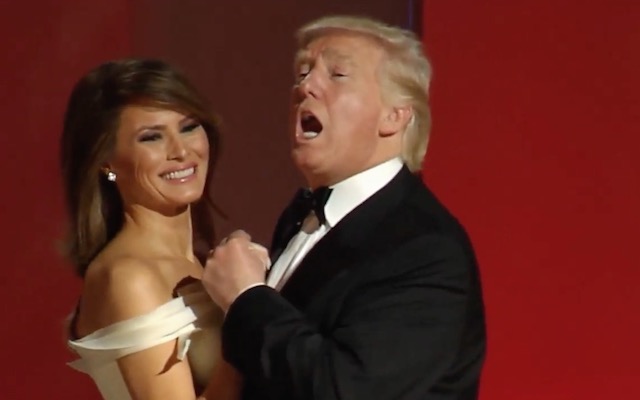The Donald Trump fueled Republican assault on ethics is a huge warning sign that Americans should be alert to rampant corruption during the Trump Administration’s reign.
The attack on Walter M. Shaub Jr., Director of the Office of Government Ethics (OGE) is a frightening sign that the GOP and Trump threaten democratic governance and the autonomy of independent investigators, like Mr. Shaub. To make matters worse, White House Chief of Staff Reince Priebus went as far as to offer a mob-like, or gangster style veiled threat to Mr. Shaub, “to be careful,” or else.
Why does any of this matter? The OGE was created as an independent agency and given authority to oversee conflict-of-interest cases and other rules in the executive branch, which allows the U.S. to maintain a strong rule of law, ethical compliance and public transparency. Each is a reason America is already great! Our greatness is now threatened by the GOP’s actions, along with those serving in similar roles vital to our democracy. Folks in similar positions to Shaub’s are likely to face the same kind of intense political pressure he confronts.
The GOP’s ethical dilemmas, and the incoming Administration’s corrupt approach to governance, are bound to create myriad challenges for America and the Republican Party. The GOP’s first act in this new Congress was to weaken, if not eliminate, the Office of Congressional Ethics. In turn, the GOP controlled Senate has sought to confirm Trump’s nominees without the ethical vetting required of previous presidential Cabinet nominees.
To make matters worse, Trump begins his presidency in violation of the Emoluments Clause, or Article I, Section 9 of the U.S. Constitution, that prevents the president from accepting presents or emoluments from “any King, Prince or Foreign State.” Our Founders’ goal was to prevent foreign interests from corrupting the president’s loyalty to the U.S., as Russia seems to have already done with Trump. Unfortunately, we do not know the extent to which Trump’s business interests are entangled with, or influenced by, Russian interests because he has already chosen to violate another ethical norm in American politics—releasing his full tax returns. We need transparency.
The aim of transparency is to combat and prevent corruption in both public and private sectors. It is widely acknowledged that corruption has detrimental effects on nations, undermines the legitimacy of governments and democratic norms. For these reasons the public increasingly demands more transparent and democratic governance. Governments and corporations have generally responded to these demands by making efforts to minimize the potential for it.
In the United States, the American people created the Government Accountability Office (GAO) in 1921, OGE in 1978, and the independent Office of Congressional Ethics (OCE) in 2008; three institutions critical to preventing corruption in government in the United States. The OCE was the office Republicans tried to eliminate their first week of the 114th US Congress. Not only do the American people recognize the huge threat that corruption poses to legitimate democratic governance, a number of global institutions, such as the World Bank, regional institutions, corporations, and foreign governments have also embraced anti-corruption efforts to mitigate and prevent it.
The roots and effects of corruption have been made explicit over the last four to five decades due to the work of a number of people and organizations: investigative journalists, academics, and civil society organizations, like Transparency International and Global Witness. Each has performed significant roles in bringing more attention to the issue of corruption. Their efforts have resulted in a diverse range of strategies to combat it at the level of the state, the private sector, and within global donor agencies that are worth revisiting as Trump begins his term.
Corruption is broadly defined as the abuse of a position of authority in an institution to personally benefit or direct benefits to others. Corrupt behavior takes the form of bribery, extortion, fraud, or improper use of one’s position to influence other societal actors for personal gain. In his book Political Order in Changing Societies, published in 1968, the late Dr. Samuel P. Huntington wrote that corruption “is a product of the distinction between public welfare and private interest which comes with modernization.” At the heart of corruption lies the debate about the balance between the public good and private gain, and the role of the state in relation to society.
The fact that America is transferring power to an individual who has proven to be both unethical and corrupt in his business life is going to test the efficacy of American governance. Unless we hold Trump accountable, the U.S. is likely to have less legitimacy and little standing depending on how much he undermines the reputation of the United States during his term in office. As of now, his behavior is likely to remain beyond the pale. As a result, the Trump Administration’s arguments or admonishments are likely to fall on deaf ears in the international community.
It would behoove Americans and global institutions to use their collective power and authority to pressure the new Congress and Administration to encourage and uphold democratic forms of governance. By doing so, the people and the international community can avoid the appearance of apathy and complacency in the face of Trump’s autocratic lies and fascist tactics that will inevitably undermine good governance.
Public and private institutions in the U.S. and abroad should focus more on mitigating, preventing, and eliminating the negative effects of corruption—if not for society then for the economy. One of the most negative effects of corruption is its ability to undermine the legitimacy and performance of the state and private sectors economically and politically. Corruption undermines social, political, and economic capital by diminishing a nation-state’s credibility before the public, creating distrust among political actors while encouraging systems of patronage, and distorting economic realities.
With Trump at the helm, it is increasingly necessary to identify and understand cultures of corruption and how they are generated through relations of dependency and exchange, as well as traditions related to state failure or collapse. Conversely, we must uncover inter-institutional relations and cultures of corruption that already exist, especially between Trump’s transnational corporate operations and nation-states (e.g., Russia) where he already colludes with a corrupt regime for his private gain.
Initiatives to curb corruption ought to include capacity building at all levels of government, within the global governance forums in which they participate (e.g., United Nations), and within multi-lateral institutions (e.g., World Bank). Continuous review and reformation of the legal and judicial systems, strengthening the rule of law, and developing better controls to monitor and evaluate procurement is necessary to avoid unethical, corrupt, and illegal activities at any scale.
Given that the ethical positions of the U.S. are likely to be called into question more than they have been since the Administration of President Richard Nixon, it is more important than ever to strengthen anti-corruption efforts that target the intersection between the public and private sectors. Addressing corruption during the Trump years will increasingly depend on people understanding cultures of corruption and how and why they can undermine the legitimacy and strength of our political and economic systems. A reduction in American corruption will naturally reduce private sector corruption as the two are inextricably linked.
Beyond the state, a corruption-free private sector is crucial to proper market functioning and, therefore, achieving economic growth and human development. And, there is much that can be done to restructure internal processes to combat corruption within the private sector. The provision of appropriate training and technical assistance to build the capacities of corporate officials, and protect “whistle blowers,” will be more important, particularly in light of the Trump Administration’s potential to pursue retaliatory approaches to governance.
Fundamentally, anti-corruption efforts must also prioritize the strengthening of civil society and the laws that protect the public from the deviant behaviors of corporations and government together. Laws directed toward strengthening corporate governance and accountability are crucial, like the Dodd-Frank Wall Street Reform and Consumer Protection Act passed by Congress and signed by President Obama in 2010. This law creates incentives, rewards, and sanctions to combat corruption by encouraging new management controls, such as auditing procedures and/or an office of an inspector general.
There are outside institutions important for combating corruption in the private sector that we can support too. For example, identifying the ways in which initiatives such as the Extractive Industries Transparency Initiative (EITI) are achieving established goals and priorities against corruption and then strengthening them could help. EITI is particularly important since oil, gas, and mineral exploration are often an important locus of corruption in the U.S., and abroad, given the extraordinary profits involved in the energy and mining sectors. EITI’s role is now even more important given that Rex Tillerson, former CEO of Exxon Mobil, will be serving as U.S. Secretary of State.
Finally, there is a risk of Trump-driven corruption within donor institutions themselves since the U.S. holds the power of the purse over a number of them. Fighting corruption within these institutions requires robust internal policies that discourage corruption and encourage the reporting and investigation of corruption allegations. Regardless of whether the state, development institutions, or the private sector is under discussion, it is important that concrete procedures or systems of due process for addressing corruption, internally and externally, exist and are strengthened.
Combating corruption is fundamentally about protecting the rights of a global citizenry that is dependent on the state and international institutions working toward economic growth, social and political stability, and human development. In this regard, combating corruption is crucial to ensure vibrant and legitimate democratic societies. With Trump at the helm, the future is going to require all of us, from local to global, to become more vigilant as America experiments with plutocracy and fascist proclivities during his reign.
~
~
~
Author: Dr. Matthew Wilburn King
Image: YouTube Still
Editor: Travis May












Read 0 comments and reply